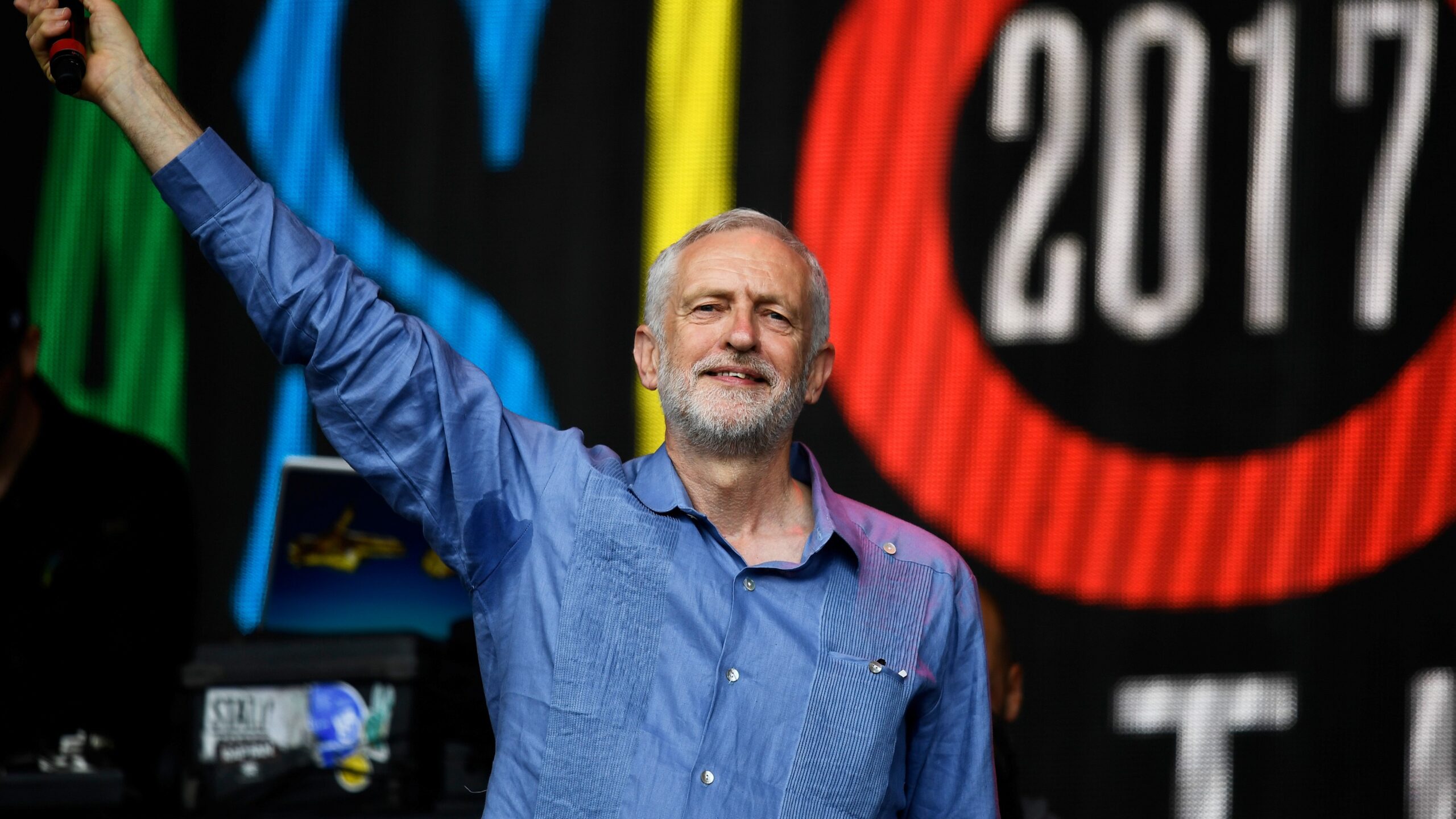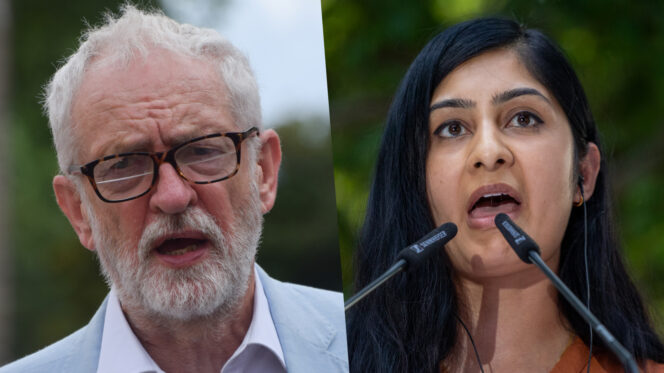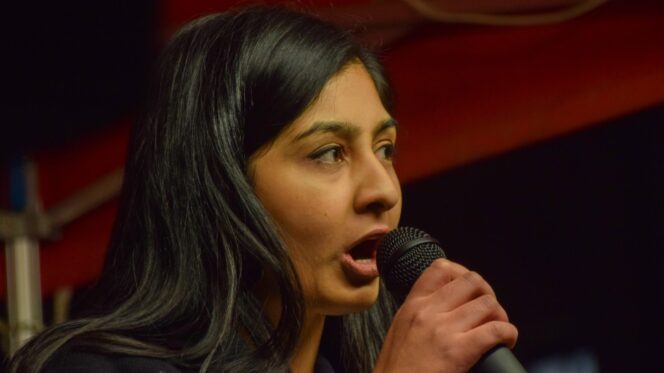The New Party Fallout Shows That Hero-Worship Gets Us Nowhere
A political split with no politics.
by Michael Chessum
22 September 2025

Just after 11am on Thursday morning, supporters of Your Party received an email inviting them to join as paying members. Two hours later, more than 20,000 had done so. That’s where the good news ended.
The launch, it turned out, was part of a power struggle – an attempt by Zarah Sultana to out-manoeuvre Jeremy Corbyn and his allies in the independent group of MPs who, in her view, were trying to carve her out. Chaos and recriminations ensued, before a statement from Sultana on Sunday evening hinted at reconciliation.
The bigger picture is this: what was launched on the stage of Corbyn’s Labour leadership campaign in the summer of 2015 has, at best, almost drowned in an orgy of hastily written denunciations and threatened legal proceedings. It is politics by ego.
This is what you get when you place the hopes of the left – and the hundreds of thousands of activists who populate it – in the hands of celebrities and their bag-carriers, without nourishing their capacity to self-organise.
In the past decade or so, we have witnessed no shortage of projects which sought to answer the mass yearning for a political alternative, and which had the institutional clout to do so. But in Momentum, Enough is Enough, We Demand Change and now Your Party, the core strategy has not been to teach people to think for themselves or to own the project, but to assemble an army of spectators.
On a good day, they are rammed into rally venues to cheer speeches from whichever big name has been booked. On a really good day, they are told to attend someone else’s picket line or knock doors for elections. Mostly, they are just invited to share things online or to donate so that, like an NGO, the project can hire full-timers to do the work.
Warts and all, the organised left in post-war Britain – Trotskyists, anarchists, communists and radical community networks – knew how to do bottom-up politics. It collapsed between the 1980s and the 2010s. As the wider left revived, the organised groups did not, and social media emerged.
The result is that, after a brief interlude of social unrest in the early 2010s, we have developed a political culture in which prominent individuals substitute for whole traditions and tendencies. Few new recruits look to the pages of socialist newspapers for insight, or attend public meetings at which perspectives are thrashed out among activists. Talking heads and left celebrities – for want of a better word, influencers – are often the only available coordinates.
Hype and celebrity politics are much easier to communicate than the long, hard task of rebuilding the organised left, or the rank and file of the workers’ movement. Whether they like it or not, Corbyn and Sultana are fundamentally icons built by hype. They and their supporters have been conditioned by the past decade into a mutually reassuring pattern of fanship. The rights and wrongs of Corbyn and Sultana’s positions aside, the farce of recent days is the logical end point of that political method.
The result is that we have witnessed a dramatic political split with no politics. The 800,000 people who signed up to hear more from Your Party have been asked to choose between Team Sultana (the ‘get on with it’ tendency) and Team Corbyn (the ‘inexplicably wait around’ tendency) on the basis of vibes, not their vision for the world.
The closest that Your Party has come to a real political debate was when Adnan Hussain, one of its independent MPs, tweeted that “Muslims tend to be socially conservative”, asking if there was “space on the left to create a broad enough church to allow Muslims an authentic space?” Sultana slapped him down, telling Pod Save the UK: “There is no room for socially conservative views in a socialist, leftwing party. Period.” She also criticised Corbyn for declining to answer, when button-holed by a member of the public, whether he was an anti-Zionist.
All of the bigger questions have been left unexplored, glossed over by a wall of reassuringly radical-sounding language. If Your Party is socialist, what is socialism? How do we get there? Who is the working class? Inside Labour, these questions are customarily fudged. Outside in the real world, they demand an answer.
Meanwhile, Shockat Adam, independent MP for Leicester South, has argued that Your Party should be wary of alienating landlords, saying “we’re not an anti-prosperity party or anti-wealth party”. Ayoub Khan, independent MP for Perry Barr, called for the army to be brought in to clear bins during the Birmingham bin strike.
Frustration and anger are rational responses to recent events. Despair is not. Public squabbles between political leaders are not uncommon, or unique to the left. Many millions have lived through neoliberalism, austerity, the anti-migrant backlash and the genocide in Gaza, and have drawn leftwing, anti-establishment conclusions. They aren’t going anywhere.
The Green party has a strong electoral base, 78,000 members (and rising), a leftwing programme and, in Zack Polanski, a leader who can articulate it skilfully. Many will conclude (as I have, in the interests of full disclosure) that it offers the best hope for a radical, democratic left alternative to Labour.
However incompetent the leadership, the almost one million people who signed up to Your Party’s mailing list are a formidable starting point. Everyone seems to agree, with varying degrees of sincerity, that democracy is essential to the project. Grassroots initiatives, such as Our Party, launched on Friday, demonstrate that pockets of activists are learning lessons quickly and are capable of showing leadership from below.
Embarrassing and demoralising as this episode has been, it may yet serve to shatter the culture of hero-worship and loyalism that has dogged the British left since the early days of Corbynism. That would be no bad thing. Charismatic media performers might be essential, but constructing our political projects around personalities is a highway to nowhere.
Michael Chessum is a socialist activist and writer based in London.


